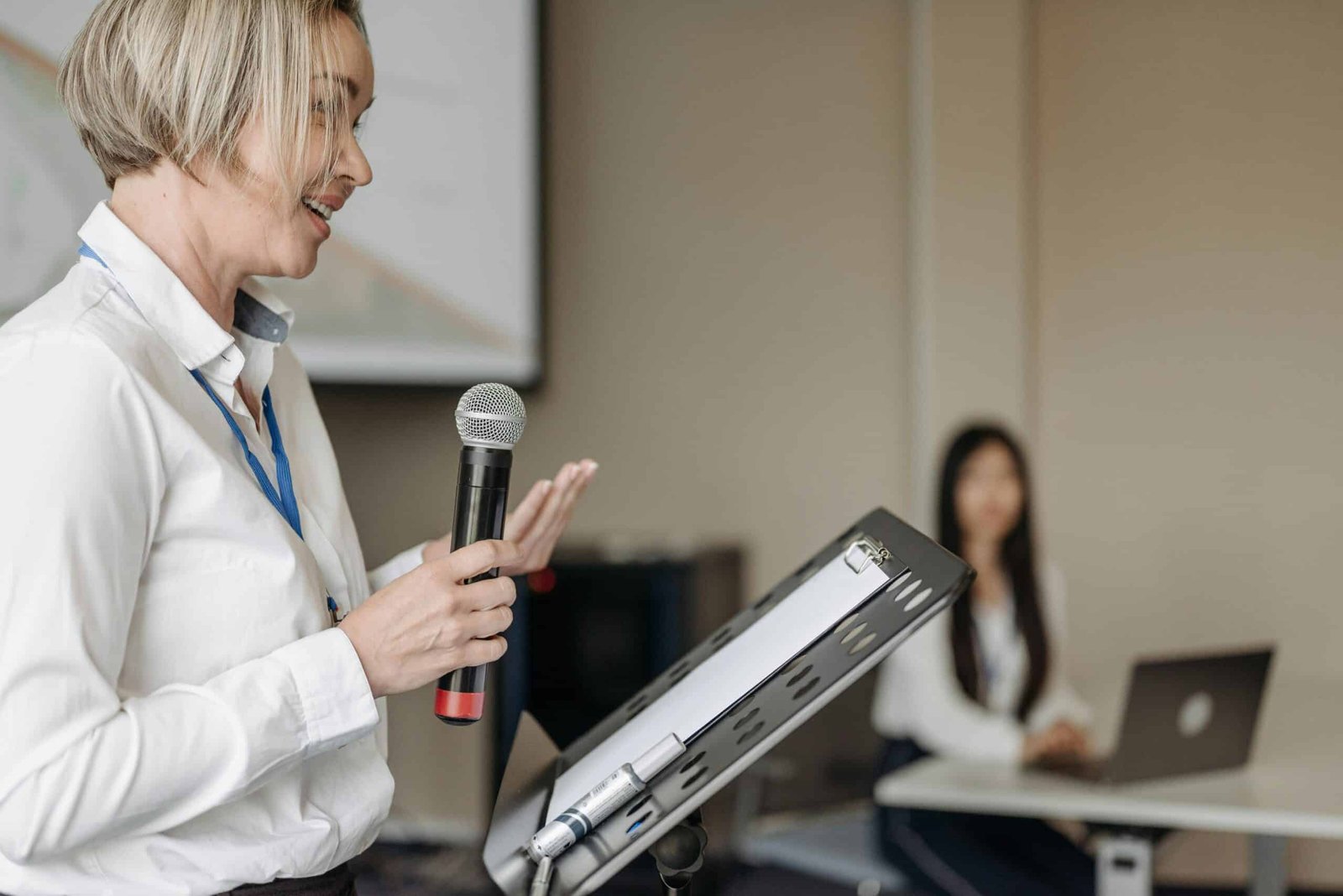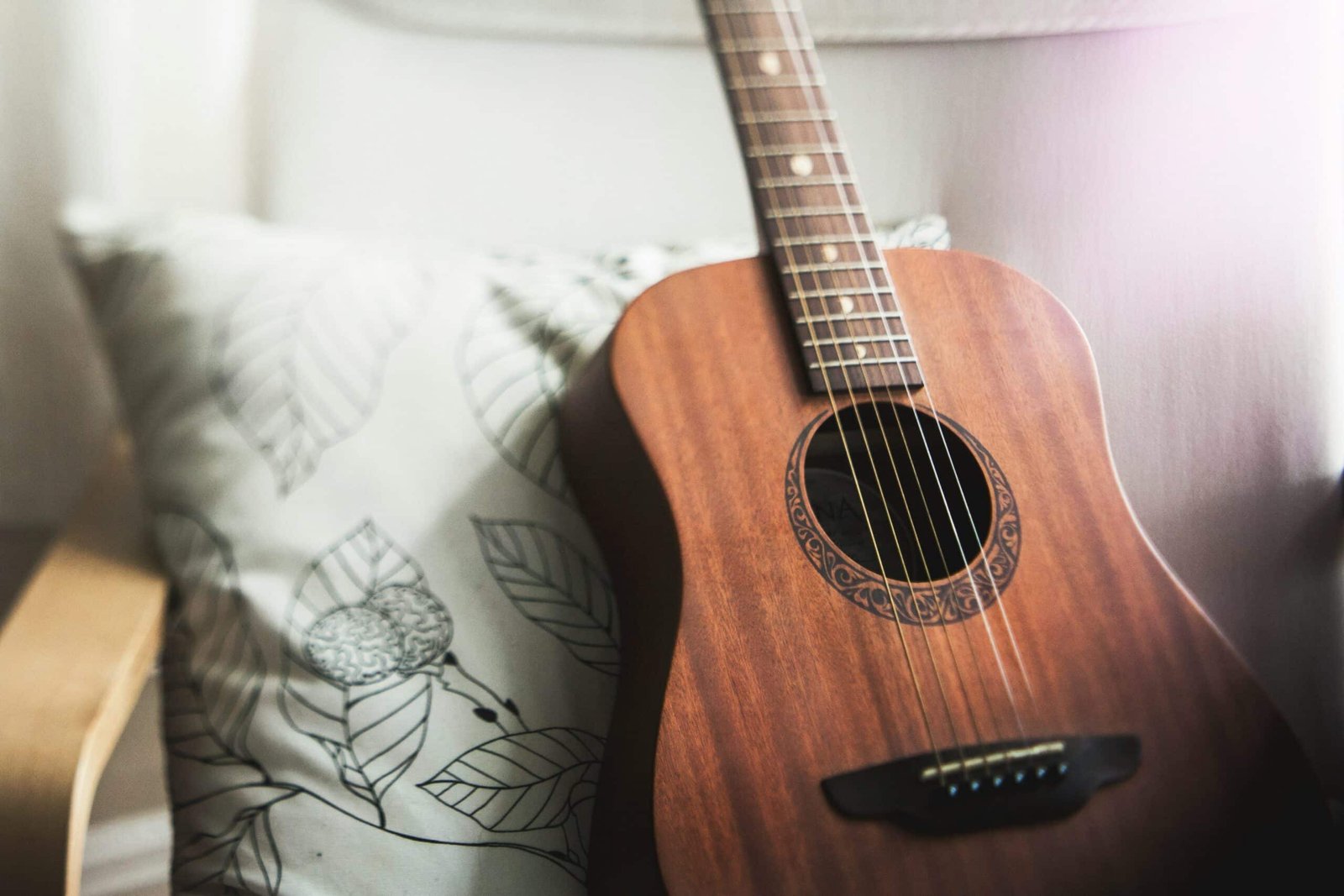Music has a unique and profound way of connecting with us on an emotional level. It can lift our spirits, provide comfort, and even help us navigate the complexities of our feelings. Beyond these immediate effects, music also holds the potential to significantly boost self-esteem and confidence. Whether you’re strumming a guitar, singing along to your favorite tunes, or even just listening to a powerful song, music can be a transformative force in building a stronger, more confident you.
Self-esteem and confidence are foundational elements of mental well-being. Self-esteem refers to an individual’s overall sense of personal worth or value, while confidence pertains to the belief in one’s abilities to succeed in various tasks and challenges. Both attributes significantly influence how we navigate life’s complexities, impacting our relationships, professional success, and overall happiness.
Music, a universal language that transcends cultural and linguistic barriers, has long been recognized for its profound impact on human emotions and psychological states. From ancient times to the modern era, music has been a constant companion in human life. Its influence extends beyond mere entertainment; it can evoke powerful emotions, memories, and even alter our mood and mental states.
The role of music in boosting self-esteem and confidence is not a myth but has been substantiated through various studies and clinical practices. Music therapy, a well-established field, utilizes music as a therapeutic tool to address emotional, cognitive, and social needs. Music therapy has been recognized by mental health professionals as a viable intervention for enhancing self-esteem and confidence, among other psychological benefits. The use of music therapy can be traced back to ancient civilizations, but it gained formal recognition in the mid-20th century and has since evolved into a critical component of mental health treatment protocols.
By engaging with music, individuals can experience a sense of accomplishment and mastery, whether through playing an instrument, singing, or even active listening. These interactions with music can lead to increased self-awareness, emotional expression, and ultimately, a boost in self-esteem and confidence. As we get deeper into this blog post, we will explore the specific mechanisms through which music exerts its positive influence on self-esteem and confidence, providing both theoretical insights and practical applications.
Disclosure: This post may contain affiliate links and I may receive a small commission if you purchase through them. There is no additional charge to you.
The Psychological Impact of Music
Music has a profound psychological impact on the human brain, affecting emotions and overall well-being. One of the key ways music influences our emotions is through the release of neurotransmitters. Listening to music triggers the release of dopamine and serotonin, chemicals that are directly associated with feelings of happiness and well-being. This biochemical reaction can lead to an elevated mood, enhancing self-esteem and confidence.
In addition to boosting these positive neurotransmitters, music also plays a significant role in stress reduction. Engaging with music can lower cortisol levels, the hormone responsible for stress. By reducing stress, music provides a sense of relief and emotional catharsis, which is essential for maintaining mental health. The calming effect of music can create a safe space for individuals to process their emotions, thereby contributing to emotional stability and resilience.
Different genres and tempos of music evoke a variety of emotional responses. For instance, upbeat and fast-tempo music can energize and motivate, while slower, more melodic tunes can soothe and relax. This versatility makes music an effective tool for mood regulation. By selecting music that aligns with their current emotional state or desired mood, individuals can use music strategically to manage their emotions, which is crucial for sustaining high self-esteem and confidence.
Furthermore, the emotional responses elicited by music can aid in self-reflection and personal growth. Through the lyrics, melodies, and rhythms, individuals often find a medium to connect with their inner thoughts and feelings. This connection can foster a deeper understanding of oneself, promoting a positive self-image and boosting confidence.
Overall, the psychological impact of music is multifaceted, involving complex brain mechanisms and emotional responses. By harnessing the power of music, individuals can enhance their emotional well-being, reduce stress, and cultivate a stable and positive sense of self, all of which contribute significantly to higher self-esteem and confidence.
Music as a Tool for Personal Expression and Growth
The Journey of Learning: Building Skills and Self-Worth
Engaging with music, whether through listening, playing an instrument, or singing, can serve as a powerful conduit for personal expression and growth. Music offers a unique platform for individuals to articulate their inner thoughts and emotions, thereby fostering a deeper understanding of oneself. This process of self-expression is not only cathartic but also instrumental in validating one’s feelings and experiences, which can significantly bolster self-esteem.

One of the most direct ways music can boost self-esteem is through the process of learning and mastering an instrument or vocal technique. This journey requires patience, dedication, and resilience. Each small victory, whether it’s mastering a difficult chord, nailing a tricky rhythm, or hitting a perfect note, contributes to a growing sense of accomplishment. These achievements, no matter how minor they may seem, can significantly enhance your self-worth.
When you set out to learn an instrument or improve your singing, you embark on a journey that challenges you to develop new skills and overcome obstacles. This process is incredibly empowering. When individuals create music, they tap into a reservoir of personal experiences and emotions. By translating these into melodies and lyrics, they find a voice for their internal world that may otherwise remain unspoken. This act of creation is inherently affirming, as it acknowledges and validates their personal journey.
Each practice session, each moment of progress, reinforces the belief that you are capable of achieving your goals. This sense of achievement extends beyond music, fostering a general sense of competence and confidence that can positively impact other areas of your life.
Expressing Identity and Emotions: The Power of Creative Expression
Music is a powerful medium for self-expression. It allows you to convey emotions and stories in ways that words alone cannot. Writing songs, playing an instrument, or even curating a playlist can be an outlet for expressing your identity and emotions. This form of creative expression is not only therapeutic but also helps reinforce a sense of individuality and authenticity.
When you create or engage with music that resonates with your personal experiences, you validate your feelings and experiences. This validation is a crucial component of self-esteem. It reassures you that your emotions and thoughts are valuable and worthy of expression. Moreover, sharing your musical creations or performances with others can provide positive feedback and reinforcement, further boosting your confidence.
Positive Feedback and Social Connection: The Confidence of Community
Engaging in musical activities often involves interacting with others, whether it’s performing in front of an audience, playing in a band, or participating in music classes. These social interactions can provide invaluable opportunities for positive feedback and support. When others appreciate and recognize your musical abilities, it reinforces your self-esteem and confidence.
Being part of a musical community offers a sense of belonging and validation. The encouragement and camaraderie found in these communities can be incredibly up lifting. Whether it’s a round of applause after a performance or a kind word from a fellow musician, these moments of affirmation build your confidence. They remind you that your contributions are valued and appreciated, which is a powerful motivator for continuing to grow and develop your musical talents.
This collective experience not only enhances social skills but also reinforces the individual’s sense of worth and identity within a group setting. Ultimately, whether through personal creation or communal participation, music serves as a multifaceted tool for personal expression and growth, fostering a resilient and confident sense of self.
Overcoming Challenges: Building Resilience and Confidence
The journey of learning and creating music is not without its challenges. There will be times when you struggle to master a difficult piece or feel frustrated by a lack of progress. However, it is through these challenges that you build resilience and confidence. Each obstacle overcome is a testament to your perseverance and determination.
Music teaches you to cope with setbacks and persist despite difficulties. This resilience is a crucial aspect of self-confidence. Knowing that you have the ability to overcome challenges in music reinforces the belief that you can handle difficulties in other areas of life as well. This resilient mindset fosters a sense of inner strength and self-assurance that is invaluable for personal growth and development.
Personal Empowerment Through Music
Music can serve as a source of personal empowerment, providing motivation and inspiration. Listening to empowering songs with positive, uplifting lyrics can enhance self-esteem and confidence. Music that resonates with personal experiences or aspirations can reinforce positive self-beliefs and inspire individuals to pursue their goals with renewed vigor. The emotional connection and motivation derived from music can be a powerful force in building and maintaining self-confidence.
Creating a personal playlist of songs that make you feel powerful and confident can be a great tool for boosting self-esteem. These anthems can serve as reminders of your strengths and capabilities. Whenever you need a confidence boost, turning to this playlist can help you tap into a sense of empowerment and motivation.
Performance and Public Speaking: Facing Fears and Building Confidence
For many, performing music in front of others can be a daunting experience. However, it is also one of the most effective ways to build confidence. Facing the fear of performing or speaking in public can significantly enhance your self-esteem. Each successful performance, no matter how small, reinforces your ability to overcome anxiety and present yourself confidently.

The skills developed through musical performance, such as poise, stage presence, and the ability to connect with an audience, are transferable to many other areas of life. These skills can enhance your confidence in public speaking, presentations, and social interactions. The more you perform, the more comfortable and confident you become in expressing yourself in front of others.
Music Therapy: Professional Support for Building Self-Esteem
For those seeking structured support, music therapy offers a professional approach to using music for boosting self-esteem and confidence. Music therapists are trained to use musical interventions to address various emotional, cognitive, and social needs. Through activities like songwriting, improvisation, and guided listening, music therapy can help individuals explore and express their emotions, build self-confidence, and develop a positive self-image.
Music therapy can be particularly beneficial for individuals dealing with mental health issues, developmental challenges, or trauma. The supportive and non-judgmental environment of music therapy sessions allows for safe exploration and expression of emotions, fostering a sense of empowerment and self-worth.
The Universality of Music: A Tool for Everyone
One of the most beautiful aspects of music is its universality. It transcends language, culture, and age, offering something for everyone. This inclusivity means that anyone, regardless of their musical background or abilities, can benefit from the confidence-boosting effects of music.
Whether you’re a seasoned musician or simply someone who enjoys listening to music, you can harness the power of music to enhance your self-esteem. The key is to find what resonates with you personally and engage with it in a way that feels meaningful and empowering. Music’s versatility allows it to be a powerful tool for personal growth and confidence for anyone willing to embrace its potential.
Practical Tips for Using Music to Boost Self-Esteem
Here are some practical ways you can use music to enhance your self-esteem and confidence:
- Learn an Instrument: Set aside time each day to practice and learn a new instrument. Celebrate your progress and milestones along the way.
- Join a Musical Community: Participate in a choir, band, or music class to connect with others who share your interest in music. The social support and positive feedback can be incredibly uplifting.
- Create a Personal Playlist: Curate a playlist of empowering songs that make you feel confident and motivated. Listen to it whenever you need a confidence boost.
- Express Yourself: Write songs, create music, or simply journal your thoughts and emotions related to music. This can be a powerful way to process and express your feelings.
- Perform: Challenge yourself to perform in front of others, whether it’s at an open mic night, a family gathering, or even a small group of friends. Each performance will help build your confidence.
- Seek Professional Support: Consider working with a music therapist if you want structured support in using music to boost your self-esteem and confidence.
Conclusion: The Lasting Impact of Music on Self-Esteem
In conclusion, music is a powerful and versatile tool that can significantly enhance self-esteem and confidence. Through the process of learning and mastering musical skills, expressing identity and emotions, receiving positive feedback, overcoming challenges, and experiencing personal empowerment, music can transform the way you see yourself and your abilities. Whether through casual listening, active participation, or professional music therapy, incorporating music into your life can help you build a stronger, more confident self. So, turn up the volume, embrace your musical journey, and let the symphony of self-esteem play on.









